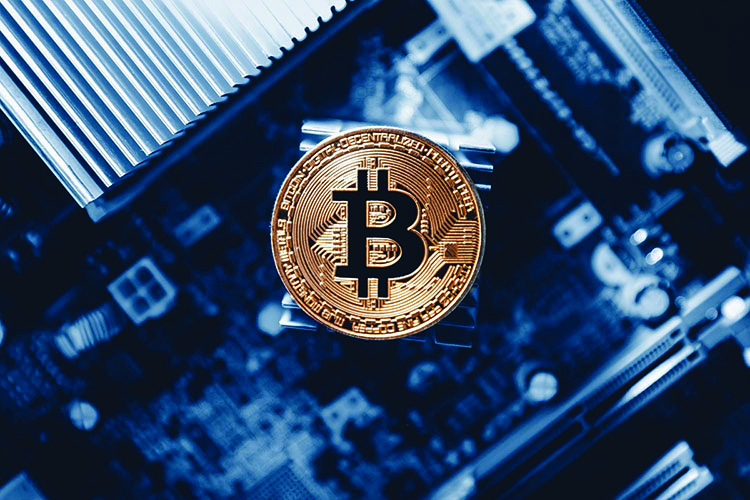Conspiracy Corner
Bitcoin: Currency of the future or NSA scam?
More stories from Alyssa Anderson
Photo by SUBMITTED
Bitcoin, a digital currency created by a seemingly non-existent Japanese man in 2008, could be nothing more than an NSA scam used to track Americans.
A truly sad day is upon us. As I type this semester’s last “Conspiracy Corner,” I can’t help but reminisce on all the fun I’ve had sharing my conspiracy theories with you all. From Bohemian Grove to the New World Order, researching and writing about conspiracies has led me on a wild adventure.
This column has given me the opportunity to delve into some of the internet’s most baffling, insane and sometimes convincing conspiracies. Although “Conspiracy Corner” has reached its end, my passion for conspiracies will never die. There will always be some wacked-out theory waiting for me just around the corner.
Throughout the semester, I have explored a wide variety of theories, most of which I have a hard time believing. However, I decided to save a very special theory for last. My final column will address a theory that keeps me up at night — a theory I have genuine concerns about.
After spending half the school year rattling off theories about secret societies and lizard people, you may be asking yourself what conspiracies I actually believe. Truth be told, I find most conspiracies difficult to rationalize, even if they are fun to discuss. This week’s theory is different.
By now, I assume everyone has at least heard of bitcoin, the experimental digital currency. In November of 2008, Satoshi Nakamoto published a research paper outlining his design for a new electronic-based currency he called bitcoin.
Though Nakamoto’s design had materialized an idea that had been around since the birth of the internet, “Wired Magazine” stated he was virtually a ghost. A Google search of his name garnered no useful information; while an online profile said Nakamoto lived in Japan, his email account was traced back to a free service in Germany. It became clear the name Satoshi Nakamoto was nothing but a pseudonym, “Wired” stated.
“The idea of digital money — convenient and untraceable, liberated from the oversight of governments and banks — had been a hot topic since the birth of the internet,” Benjamin Wallace reported for “Wired.” “Yet every effort to create virtual cash had foundered.”
Until bitcoin, that is.
In the midst of a failing economy, with trust in the government and banks dwindling, Nakamoto had designed a form of currency that did not force people to rely on such institutions. Bitcoin was said to be able to prevent fraud while ensuring the predictable supply of money and keeping inflation at bay.
Although bitcoin sounds fine and dandy in theory, it all seems too good to be true. A supposedly untraceable digital currency created by a person no one has ever seen or heard from? Hard pass.
According to “Wired,” things got pretty fishy when bitcoiners began to look for the enigmatic Satoshi Nakamoto. The harder they searched, the more obvious it was that Satoshi Nakamoto wasn’t a real person.
“On a bitcoin IRC channel, someone noted portentously that, in Japanese, Satoshi means ‘wise’, Wallace said. “Someone else wondered whether the name might be a sly portmanteau of four tech companies: SAmsung, TOSHIba, NAKAmichi, and MOTOrola. It seemed doubtful that Nakamoto was even Japanese. His English had the flawless, idiomatic ring of a native speaker.”
Just as suddenly as he appeared, Nakamoto disappeared out of thin air, leaving his loyal Bitcoiners with unanswered questions.
Plenty of bitcoin-related conspiracies exist, but there is one theory I find has real merit. According to Orbex, more and more people are beginning to believe the NSA is the real Satoshi Nakamoto.
“Satoshi Nakamoto, the man behind Bitcoin, is believed to simply be an NSA created pseudonym,” Orbex stated. “This conspiracy theory also asserts that the NSA has backdoor access to the SHA-256 algorithm which obviously counteracts the claim that Bitcoin is totally secure and that user data is anonymous.”
Bitcoin could be another one of the ways the government continues to track American citizens. The NSA introduced bitcoin as a widespread currency, allowing them to keep tabs on users. Since bitcoin was created out of thin air, doesn’t that mean it can disappear whenever, too?
I don’t know much about bitcoin besides what I have seen on the internet or on TV shows like “Scandal” or “Mr. Robot,” but I know enough not to trust it.
Anything created by a mysterious, unknown Japanese man is not something I want to get involved with. I hope you see where I’m coming from.
Stay away from bitcoin — you’ve been warned.

